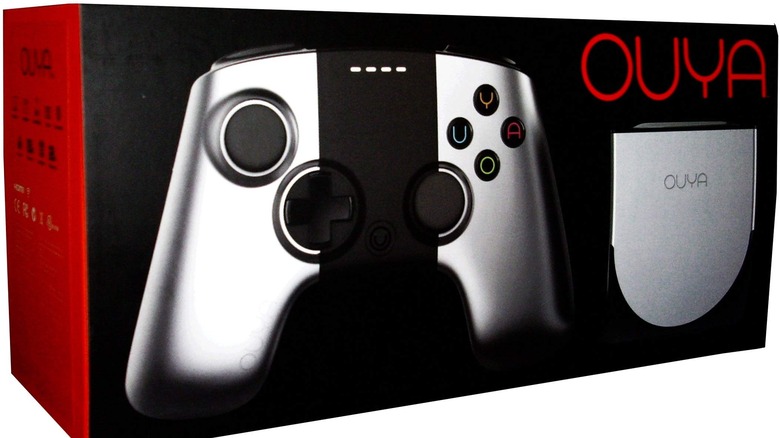Today The Ouya Is Officially Dead
It took the crowdfunding world by storm, with promises to open up game development to just about anyone. It brought us some real gems in the process. Today, it is no more.
The Ouya servers are officially shutting down today, rendering the Android-powered microconsole all but useless for those who might've purchased games on it. But what a run the little box had. It was announced as a Kickstarter project in 2012, and managed to raise over $8.5 million before its eventual release in 2013. And though the hardware itself was unimpressive — that controller had some real issues — the Ouya drew enough developer interest to put together a decent library of games.
Rememeber TowerFall, the frenzied multiplayer title from the developer that eventually brought us Celeste? That started as an Ouya exclusive. There's also Double Fine's Broken Age, which came to the Ouya before any other gaming console on the market. And no joke, the Ouya got some big names to come over, too, such as: Final Fantasy 3, Flappy Bird, Oddworld: Munch's Odyssey, Sonic the Hedgehog 4, seasons one and two of Telltale's The Walking Dead, The Bard's Tale, and You Don't Know Jack, to name a few.
By the end, however, the Ouya was basically an emulation machine; a Raspberry Pi that wound up costing about three or four times as much. Some smaller indie developers still cut their teeth on the system, as it was relatively easy to get a game into the Ouya's marketplace. But most who developed for a living had shifted their attention elsewhere, as both the Xbox One and PlayStation 4 made concerted efforts to get indie developers on board with their respective platforms.
The Ouya was ahead of its time in a couple of ways. Those who scoff at the console's mobile innards must not own a Nintendo Switch, which is largely made from the same stuff you'd find in a modern day tablet. And early in the Ouya's life, the platform was quick to jump on board with OnLive, the kind of video game streaming service that companies like Microsoft, Sony and Google are feverishly working to either launch or improve.
By the time you read this, Ouya servers will likely have gone offline. You won't be able to buy new games, and any games that check for your digital rights won't launch. The closure highlights one of the utmost fears everyone has about the digital future; that our stuff will just stop working one day, even if the hardware we're using is totally fine. But today we're seeing major companies like Sony and Microsoft recommit to backward compatibility and honoring our past purchases, so maybe those fears are unfounded.
In any case, R.I.P., Ouya.

